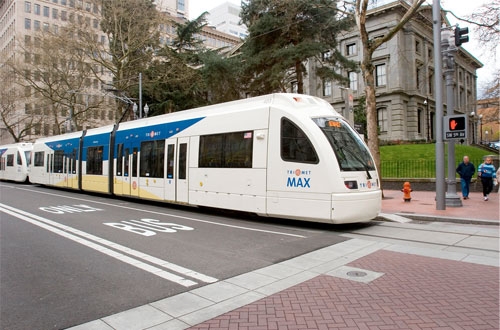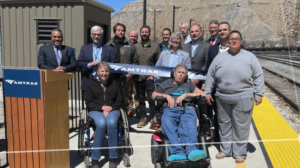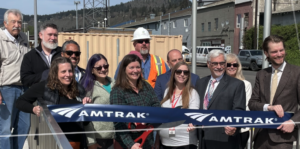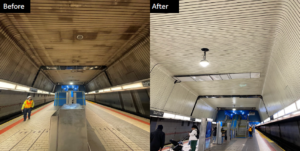TriMet makes implementing audit’s safety recommendations priority
Written by Jenifer Nunez, assistant editor
TriMet General Manager Neil McFarlane responded to the release of the Oregon secretary of state's audit, thanking the team of auditors for their diligence during their review of the agency's finances, transparency and operations.
“We are an organization that embraces the concept of continuous improvement, recognizing there is always the opportunity to do better. That is why we welcomed your assessment,” said McFarlane.
The audit noted that TriMet had made progress in the areas of its financial condition, transparency and operations and the report’s 23 recommendations will be implemented.
TriMet’s 10-page response provides details, efforts and a timeline for implementation. TriMet Interim Deputy General Manager Bob Nelson will lead the implementation phase and provide monthly updates to the public and the board of directors.
“Our first priority will be on those items that further the delivery of safe and dependable service,” said McFarlane.
The audit reported on TriMet’s efforts to address operator safety concerns and provided additional recommendations including improving communication with frontline employees to provide feedback on its addressing of safety concerns.
“Since 2011, we received and addressed 452 Requests for Safety Assessments; all but 16 have been implemented to date as they require outside agency involvement,” noted McFarlane. “The auditors also heard from employees that TriMet had not effectively communicated those results back to employees. The auditors noted that we have fallen behind on preventive maintenance of our MAX tracks and signals. That’s an issue we’ve been addressing, including reorganizing to better focus on our aging system and hiring an outside firm to assess the state of repair of our rail assets, including light-rail vehicles and maintenance-of-way infrastructure. TriMet has also committed to spending more than $3 million to fund MAX track and system improvements over the next two years.”
The auditors recommended continuing to work with the Amalgamated Transit Union on the Interim Hours of Service policy and include it in the upcoming contract and expand it to cover all safety sensitive positions. The interim policy eliminated “double-backs” where a small number of operators took just a few hours off between service days. The policy is “interim” as it was negotiated outside of the three-year Working & Wage Agreement.
The audit covered other issues such as financial, employee relations, union relations and transparency.
TriMet says that most of the recommendations will be implemented by the end of the year; recommendations related to contract negotiations will likely take longer.
“While this comprehensive audit gives us good direction on ways to improve, it’s not a finish line. We will continue to focus on ways to improve our safety, service and communications with our employees and the public,” said McFarlane.





